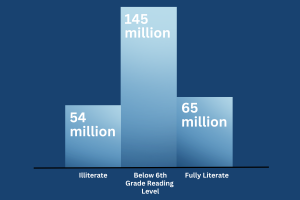Binging on nostalgia – why we replay TV from our youth
January 25, 2018
Sitting in front of the television screen, wondering what to watch next, one may feel a spontaneous desire to skip past the new programs available and revisit an early 2000s Disney show or 90s cartoon movie. By impulse, one may choose a “classic” movie or TV show over new releases. While this feeling may seem to stem from simple curiosity, there are deeper psychological reasons driving such behavior.
Besides rewatching a program simply out of enjoyment, one tends to revisit movies and TV shows for either therapeutic or nostalgic reasons. Therapeutically, rewatching shows and movies helps heal previous emotional wounds, tapping into good memories to reconcile sadness or pain during hard times. Some may also feel nostalgic while watching old shows, remembering their past memories and experiences. Oftentimes, the programs one chooses to rewatch are those that once gave comfort. For example, the 90s show “Friends” could remind people of their youth and watching it with their families.
“It’s refreshing to rewatch programs because I get taken back to when I was younger,” said junior Dianna Shen. “Also, because I rewatch TV shows years later, I find some of the jokes funnier than I had years ago.”
Another cause of rewatching is predictability. Some people may like to rewatch an old movie or TV show because they already know what’s going to happen, and they can prepare themselves for the worst. For example, if someone watches a horror movie multiple times, they will know who the killer is or who is lurking in the basement, lessening their fear of the unknown. In any genre of entertainment, rewatching also allows people to skip the parts they don’t like and focus on the ones they do. They can ask deeper questions about the characters and plot, as they have answered the more general ones before. In turn, people start to notice and understand previously unknown qualities of a TV show or movie.
“‘The Office’ is really funny so whenever I want to watch something that makes me laugh, I know ‘The Office’ is really good at that,” said sophomore Anna Paaske. “After watching it numerous times, I get really connected to the show so it is fun to go back and rewatch it.”
Studies have shown that elderly people often recall disproportionately more memories from when they were 10 to 30 years old than at any other age. This is known as the reminiscence bump in which thoughts become enduring memories because the experiences are stored during a period of brain stability. They become memories that contribute to one’s sense of identity. As they are created during an individual’s peak physical performance, the memories from one’s youth have greater significance and will likely factor into one’s decision-making process when picking a show to watch. The significance of childhood memories can make an individual feel compelled to watch shows or movies from that period of their life.
“Events that are tied to emotions are much more memorable than other pieces of our past,” said Dr. Lindsay Hallaway, assistant professor of psychology at Santa Clara University. “Adolescence is a time when not only is the brain still developing, but young people often face emotionally-charged events and when people really begin to shape who they are as a person. So you’ve created a situation where watching a show from your junior high days may stir up nostalgic memories that activate our brain’s reward system.”
Rewatching favorite movies and TV shows has also been proven to give individuals a mental boost. Researchers at University of Buffalo have found that when watching a rerun of one’s favorite show, one does not exert as much effort in controlling their thoughts or actions, thus conserving one’s mental energy for self-control and willpower in more important tasks. Generally, watching an old favorite show has been proven to have mentally and physically restorative effects, allowing the mind and body to recharge, explaining why some have a craving to watch their favorite show after a long day.
“Already knowing the storyline of a show reduces our cognitive load or mental effort,” said Hallaway. “This gives the brain a chance to restore some energy, creating what you could think of as a mental recharge. While watching a new TV show requires a certain amount of mental effort to pay attention, process information and listen to what’s being said, watching a rerun or a favorite movie requires far less mental effort by comparison. We already know the story line and don’t have to try very hard to interpret the sights and sounds we’re taking in, giving us a sort of mental-boost after our minds have a chance to ‘relax.’”
While many adults rewatch old childhood movies and TV shows, some also decide to watch current cartoons such as “Rick and Morty,” “Big Mouth,” “Bob’s Burgers,” “Family Guy” and “The Simpsons.” One reason to explain this phenomenon is that watching these programs allows adults to escape the stress of adulthood. Cartoons allow them to disconnect from reality and enter imaginary realms of Pokemon and fighting turtles. These programs are also easy to enjoy as the plots are simple.
As people grow older, they may still continue to fall back into habits of watching their favorite shows and movies from their adolescence; this desire to reach for older pieces of entertainment is no coincidence. Although one might dismiss the natural gravitation to nostalgia-evoking shows and movies as habit or pattern, their therapeutic, nostalgic and even mind-boosting effects can be more meaningful than one may realize.





























































Tracey lane • May 3, 2021 at 1:33 am
I loved the gentle touch with Jill Gascoigne in the 80s I was in high school it reminds me of old times I use to look forward to Friday evenings at 9pm just recently bought the box set. Just looking at the decorating and style of how things was back in the day I really did admire Jill Gascoigne ..detective inspector Maggie Forbes has she was called.